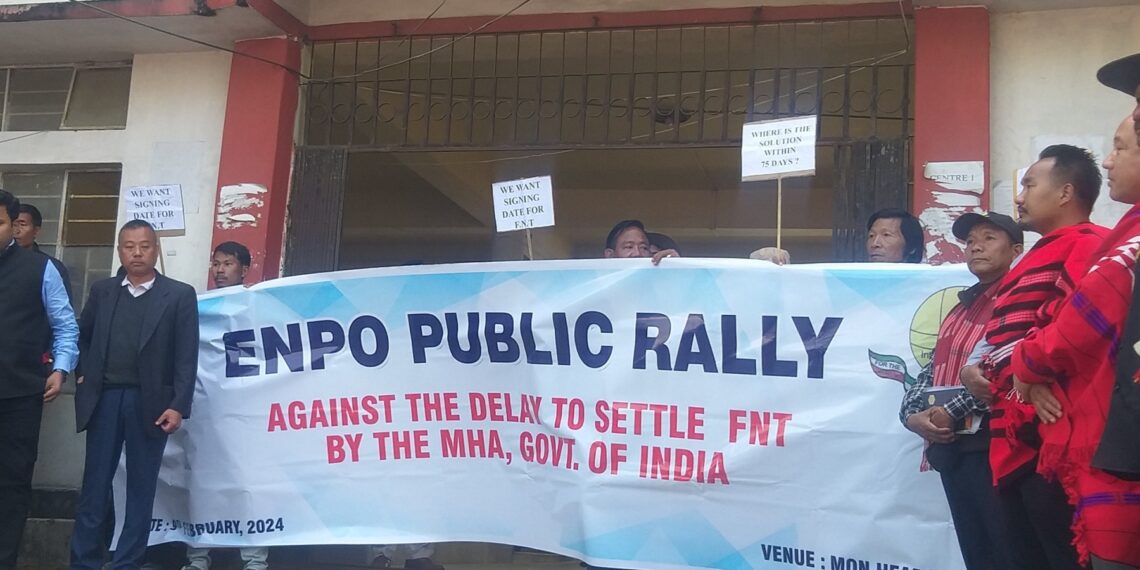KOHIMA: Following a marathon nine-hour-long meeting, several organisations under the Eastern Nagaland People’s Organisation (ENPO) has decided to continue with the ongoing “public emergency” across the region.
In the “Eastern Nagaland Public Meeting”, the attendees also reiterated their commitment to boycott both Central and state elections until the creation of the Frontier Nagaland Territory (FNT).
Held at the CKS Hall in Tuensang town, the participants affirmed their adherence to the resolutions laid out in the Chenmoho Resolution of February 23.
In a post-meeting interaction with the press, ENPO President R Tsapikiu Sangtam called the meeting as a success, informing about the broad representation of organisations from Eastern Nagaland, including current and former elected officials.
ALSO READ ENPO calls for 12-hr shutdown in view of crucial Eastern Nagaland Public Meeting tomorrow
He underscored the lasting validity of the Chenmoho Resolution, stating that there are no plans to withdraw it.
Sangtam also stressed that the “resolution reflects the collective will of the public”, and they remain steadfast in their commitment to it.
The Chenmoho Resolution vowed to boycott all electoral processes until the demand for FNT is met.
Acknowledging existing disparities and communication gaps with members of the Eastern Nagaland Legislators Union (ENLU), Sangtam highlighted constructive discussions held during a coordination meeting.
He noted that ENLU members comprehended their standpoint and expressed willingness to collaborate in advancing the cause.
ALSO READ Nagaland CM proposes autonomous body to ENPO through dialogue, urges not to boycott polls
Additionally, ENLU representatives briefed attendees on their recent dialogue with Home Ministry officials concerning the FNT on March 18.
Further developments indicate that ENLU members are slated to meet with Chief Minister Neiphiu Rio to continue discussions on the pertinent issues at hand.
Earlier, on March 20, Chief Minister Neiphiu Rio urged the ENPO to refrain from boycotting polls.
He stressed on the importance of constructive engagement in resolving differences, suggesting the potential establishment of an autonomous body through democratic processes and consultations.















